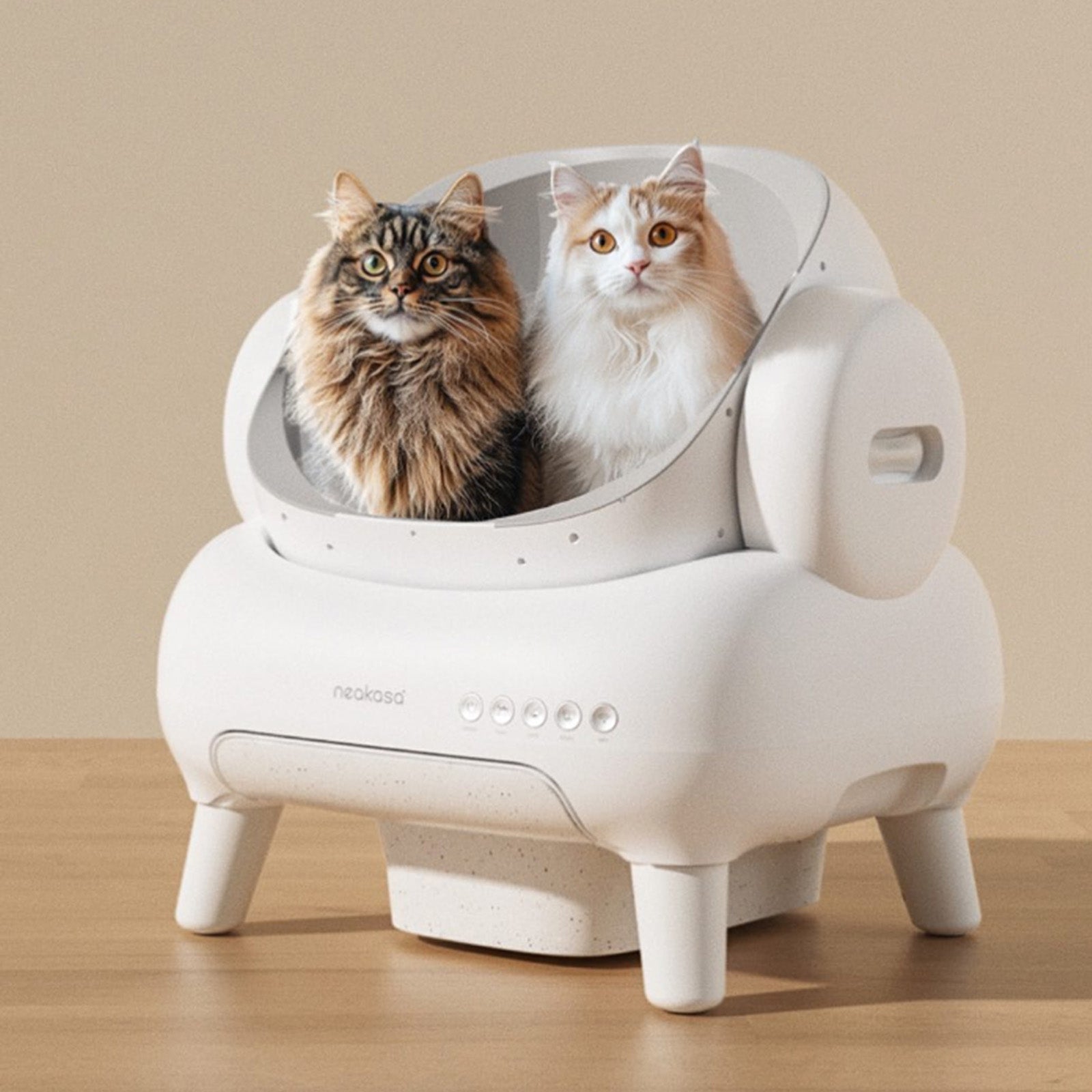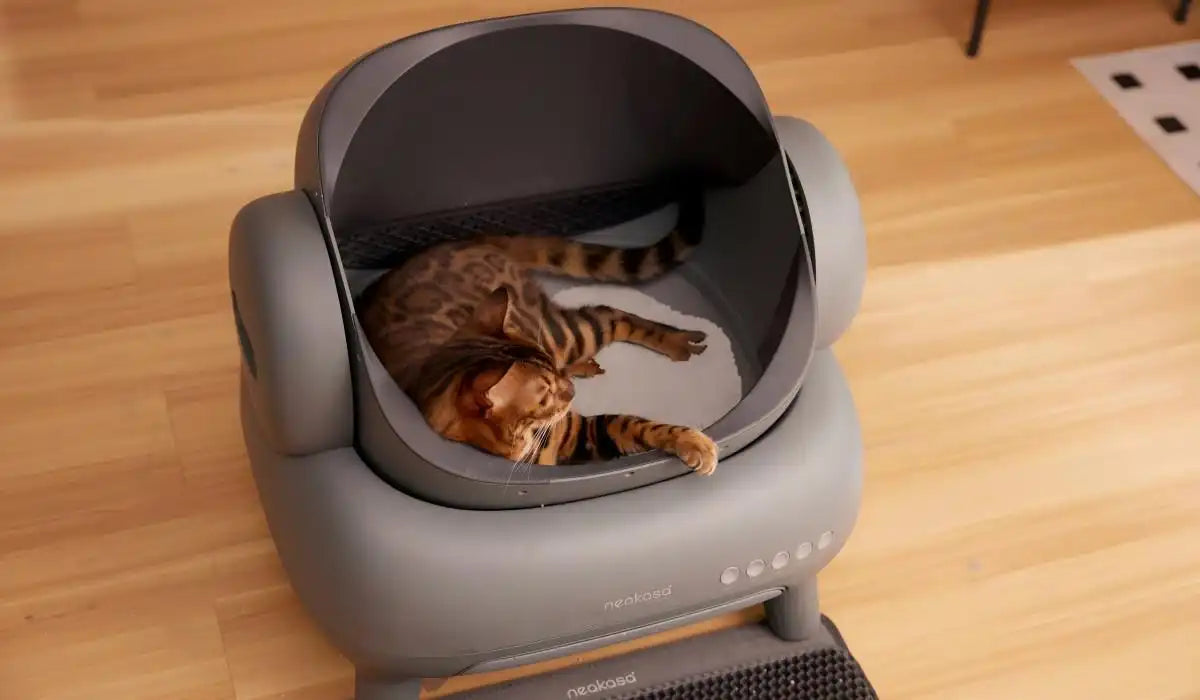
Cats can have some quirky behaviors, but one that might leave you scratching your head is finding your cat laying in the litter box. While it’s not uncommon for cats to spend time in the box, especially during bathroom breaks, seeing them lounging or resting there could be a sign of something more significant.
From stress and anxiety to potential health problems, there are many reasons why your cat might be laying in the litter box. In this blog post, we’ll explore the most common causes behind this behavior and offer practical solutions to help your feline friend feel more comfortable. Whether you're a first-time cat owner or a seasoned pet parent, knowing what to look for and how to respond can help you quickly address any concerns and keep your cat happy and healthy.
7 Common Reasons Your Cat May Be Laying in the Litter Box
If your cat is laying in the litter box, it can be concerning, but understanding the potential reasons behind this behavior can help you take appropriate action. Here are some of the most common causes and what you can do to address them.
- Illness or Pain: Recognizing the Signs of Health Issues
One of the first things to consider when your cat starts laying in the litter box is whether they might be feeling unwell. Cats suffering from health issues like urinary tract infections (UTIs), gastrointestinal problems, or other internal pain may seek out the litter box for comfort. The litter box might be their go-to place if they associate it with relief from discomfort, especially if they're experiencing pain when urinating.
If your cat is frequently visiting the litter box without producing waste, or if they show signs of discomfort while inside, it’s essential to consult your veterinarian to rule out any underlying health conditions.
- Territorial Behavior: Multi-Cat Households and Litter Box Dominance
In homes with multiple cats, litter box behavior can sometimes be a result of territorial disputes. Cats may lay in the litter box to assert dominance or stake a claim over their territory. This behavior is common in multi-cat households where cats compete for resources like food, water, and space.
If you notice one cat frequently occupying the litter box while others avoid it, consider adding more litter boxes throughout your home to reduce competition and give each cat a safe and private place to go.
- Seeking Safety: Understanding Cats' Need for a Secure Space
Cats are instinctively drawn to small, enclosed spaces where they feel safe and protected. When your cat feels vulnerable or anxious, they may seek out the litter box as a place of refuge. Whether it’s due to unfamiliar visitors, loud noises, or changes in their environment, the litter box might serve as a temporary hiding spot where your cat feels secure.
To help your cat feel safe, create other cozy, quiet spaces in your home where they can retreat when they need to be alone.
- Heat Seeking: Is Your Cat Looking for Warmth?
Cats often seek out warm places to relax, and the litter box might provide a warm spot, especially if it’s located in a sunny area or near a heat source. This is more common during colder weather when cats are looking for extra warmth.
If your cat seems to be using the litter box as a warm resting place, consider providing a heated cat bed or placing a blanket in a cozy, sunny corner of your home where they can comfortably nap.
- Pregnancy or Hormonal Changes: How These Factors Affect Cat Behavior
Pregnant or nursing cats may exhibit unusual behaviors, including laying in the litter box. Hormonal changes can make your cat more protective or anxious, leading them to seek out a quiet, enclosed space like the litter box to rest. If your cat is pregnant or has recently given birth, ensure she has a clean, comfortable nesting area away from the litter box where she can rest peacefully.
- Dirty or Uncomfortable Litter Box: When Your Cat Is Trying to Send a Message
A dirty or poorly maintained litter box can lead to a range of behavioral issues, including your cat lying inside the box. If the litter box is too dirty, your cat may be trying to signal dissatisfaction. Cats are clean animals and prefer their litter box to be clean and odor-free.
Make sure to scoop the litter box daily, replace the litter weekly, and clean the box with mild soap and water to keep it fresh.
Additionally, ensure the litter box is comfortable and easy for your cat to access, especially if they are older or have mobility issues.
If you don't want to scoop every day, consider the Neakasa self-cleaning litter box, which automatically removes waste to maintain a clean environment for your cat at all times.

- Senior Cats: Aging and Cognitive Decline's Role in Litter Box Behavior
As cats age, they may experience cognitive decline or physical discomfort due to conditions like arthritis. This can lead them to spend more time in the litter box, as they may become confused about where they are supposed to rest or may find it difficult to move around. Senior cats might also find the litter box to be a convenient resting spot if getting in and out of it is easier than moving around the house.
Consider using a litter box with low sides and providing extra care and comfort for senior cats, including softer bedding and easily accessible rest areas.
What to Do If Your Cat Is Laying in the Litter Box
If you notice your cat laying in the litter box frequently, it’s important to observe their overall behavior and health. First, rule out any medical conditions by scheduling a vet visit. If health issues are not the cause, assess your cat’s environment for potential stressors, such as new pets, changes in routine, or lack of safe resting places. Ensure the litter box is clean and comfortable, and provide your cat with alternative spaces to rest, such as cat trees, beds, or cozy hideaways.
When to Seek Veterinary Help: Recognizing Red Flags
If your cat continues to lay in the litter box despite your efforts to address potential stressors or discomfort, it’s important to seek veterinary advice. Persistent litter box laying, especially when combined with symptoms like frequent urination, vomiting, lethargy, or changes in appetite, could indicate a more serious underlying issue. Your vet can perform a thorough examination and recommend treatment options to help resolve the behavior and any associated health concerns.
Conclusion
While it might be puzzling or even concerning to see your cat laying in the litter box, this behavior is often linked to a range of factors such as stress, health issues, territorial behavior, or simply seeking comfort. The key to addressing this behavior is understanding what might be triggering it and taking the appropriate steps to create a more comfortable and secure environment for your cat.
By identifying the root cause and addressing it with practical solutions, you can help your cat feel more at ease and reduce the likelihood of them using the litter box as a resting spot. Take action today to ensure your feline friend’s comfort and well-being, and don’t hesitate to seek professional advice if needed.








Leave a comment
This site is protected by hCaptcha and the hCaptcha Privacy Policy and Terms of Service apply.